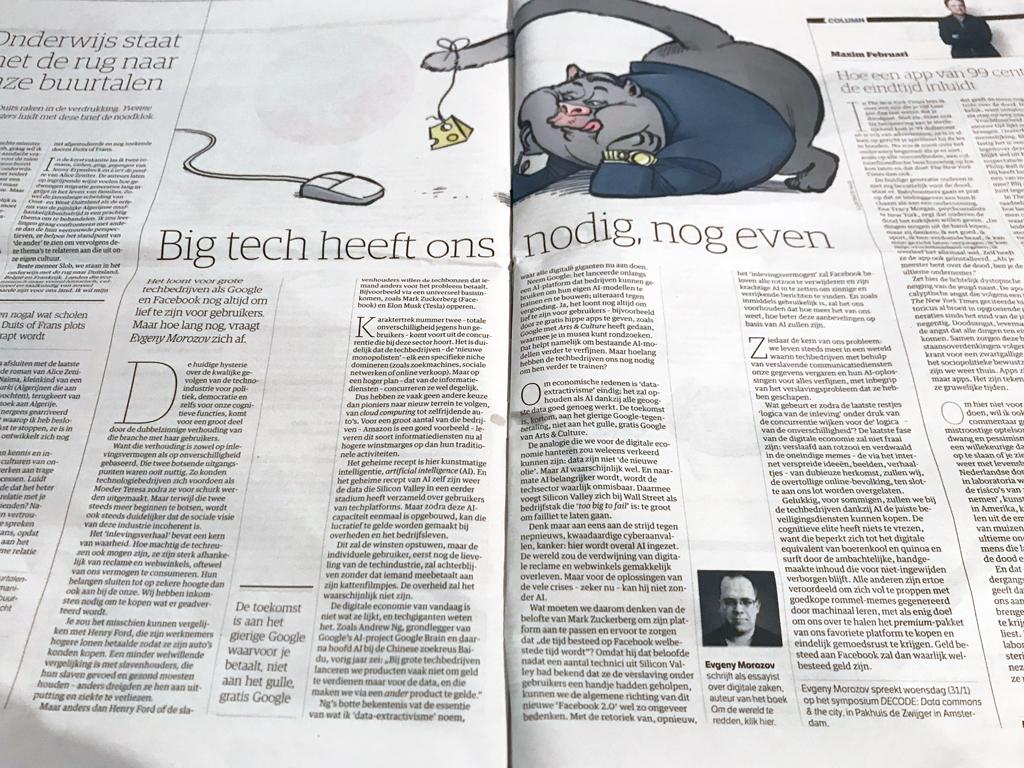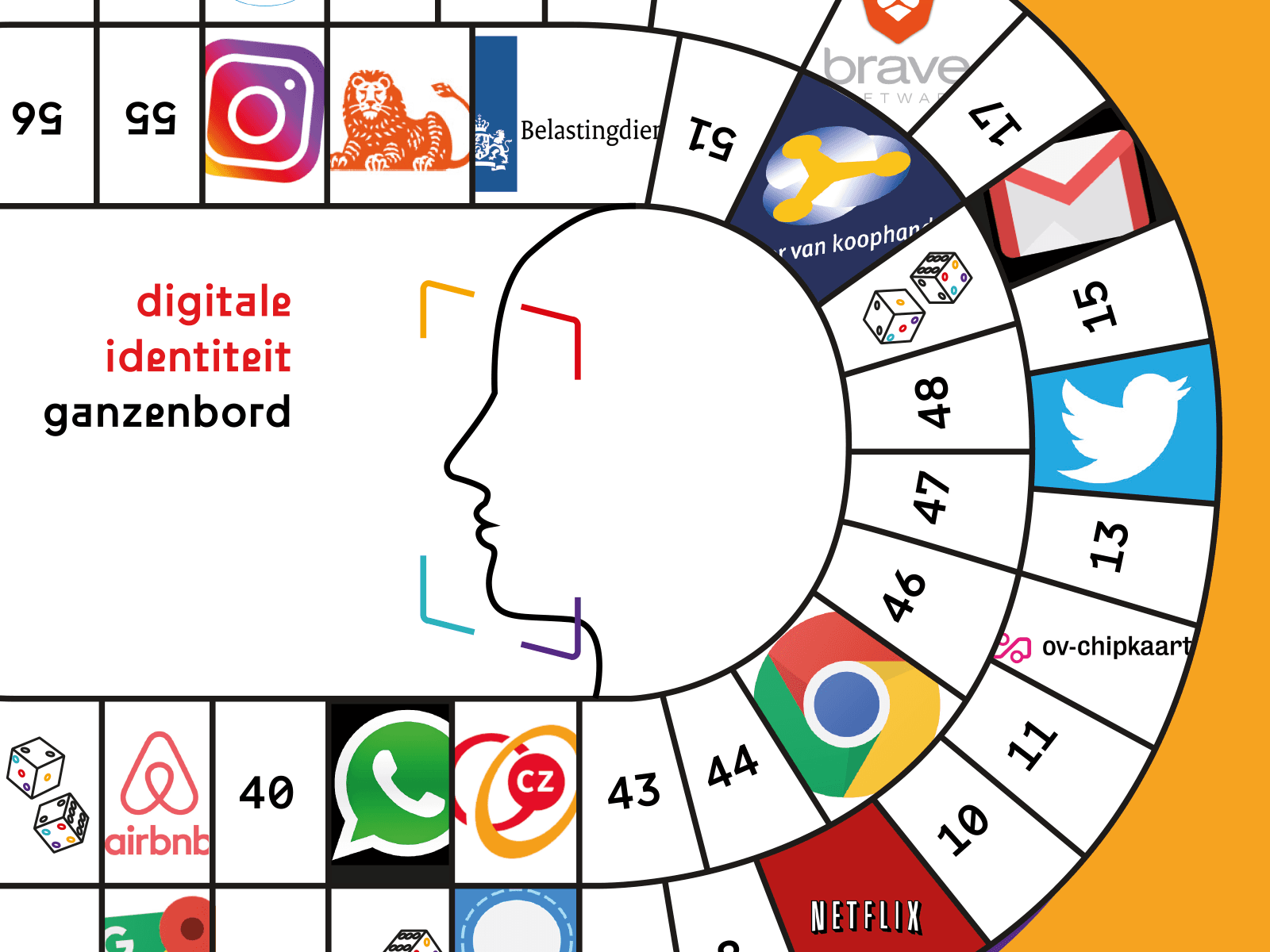Just before the event 'DECODE: Data commons & the city' in Amsterdam, Evgeny Morozov wrote an opinion article in the Dutch newspaper nrc. This article is published in Dutch (you may want to try a translation service to translate it). Below is a (translated) quote.
For the big tech companies, like Google and Facebook, it is in their interest to be nice to their users. But for how long, Evgeny Morozov asks himself.
"The current hysteria about the negative consequences of the techno industry for politics, democracy and even our cognitive functions is largely due to the ambiguous relationship between this branch and its users.
Because that relationship is based on both empathy and indifference. Those two conflicting starting points were once useful. For example, technology companies could pretend to be Mother Teresa as soon as they became a villain. But as the two increasingly begin to clash, it is becoming increasingly clear that the social vision of this industry is incoherent.
The 'empathy story' contains a core of truth. However powerful the tech giants may be, they are heavily dependent on advertising and web shops, or on our ability to consume. Their interests are, to some extent, in line with ours. We need income to buy what is being advertised.
You might be able to compare it to Henry Ford, who paid his employees higher wages so that they could buy his cars. A less benevolent comparison is with slave owners, who had to feed their slaves and keep them healthy - otherwise they risked losing them to exhaustion and disease.
But unlike Henry Ford or the slave owners, the tech bosses want someone else to pay for the problem. For example via a universal basic income, such as Mark Zuckerberg (Facebook) and Elon Musk (Tesla) have suggested."
About the project DECODE
DECODE is a 3-year project, funded by the European Commission, providing tools that put individuals in control of whether they keep their personal data private or share it for the public good. It’s a crucial project for the European Commission to protect the data and online identity of its citizens and in protecting their sovereignty. The project is already widely discussed in the media, such as in The Financial Times and the BBC.
Evgeny Morozov writes as an essayist on digital matters, and is the author of the book 'To save the world, click here'.


